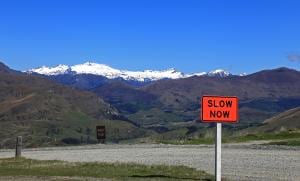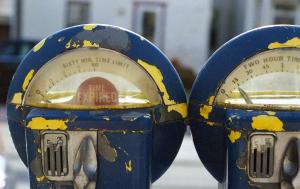 Until I saw the car next to me, I have to admit I wasn’t paying much attention other cars or the “others” in them. It is a common experience. You’ve had it too, if you’re brave enough to admit it.
Until I saw the car next to me, I have to admit I wasn’t paying much attention other cars or the “others” in them. It is a common experience. You’ve had it too, if you’re brave enough to admit it.
Tracking my typical way home from the office, I went into default mode and simply drove. I executed the basic functions of steering, braking, turning, etc. but I did it out of my procedural memory. The drive became automatic. I turned into my thoughts, focusing on what had happened that day and what would happen later.
Until that is, I saw the car next to me.
A copper-hued sedan showing age and abuse ambled along in the lane beside me. I accelerated to pass on the right but noticed that the car had no driver. At least it didn’t have a driver that I could see.
The car was loaded with “stuff” – clothes, boxes, coat hangers. I believe there were even a few full sized lamps in there. This load reached to the ceiling in backseat, and nearly the ceiling in the front passenger seat. The car was simultaneously amazing and terrifying.
Of course, I had an opinion. The word “hoarder” went through my mind, wondering how someone could live like that. It wasn’t a proud moment, necessarily. We do this kind of judgment all the time. Not the “I’m better than you judgment” though we can certainly go there, but the judgement of what “is” versus what “should be.”
In the middle of my drive home, cruising beside this mobile junk drawer, I had one of those moments. I stayed between the lanes on the road but I rode the center line between judgment and being judgmental. Then, a thought occurred to me.
I have no idea what’s going on with that person. No clue.
I didn’t know this person, their story, or their personality. We had never shared a conversation or a meal. All I knew is what Isaw.
Much of the work of spiritual formation and spiritual transformation happens when we engage the wisdom of God at the level of the senses. We hear, see, taste, smell, and touch and then we move into assessment, either with grace or with grimaces.
We often come into the stories of others without invitation, with only the extraordinary limits of our senses as a guide. Strangers. People on the street. We create whole narratives for them based on what we know to be true of ourselves or our past experience. Sometimes this is healthy to assess a physical threat, but we are not nearly as accurate when our assessments fire up our amygdala. In other words, it is hard not to assume when we want to either fight or fly.
And all of this mental and sensory gymnastics is part of our growth.
I needed to see that car packed to the seams. Then I needed to be reminded of my own limitations. It only follows that I needed to think about opening myself up to engaging with a person before interrogating them and assuming on their behalf.
My hope is to move from making assessments to forming relationships. Why? Because…
We are formed best by knowing others as much as we know ourselves.
Entering into the story of another teaches us about what the Spirit of God is doing in us, about our inconsistencies and the imperfection of our visions of reality. We also learn how much bigger the world of the imago deican be.
I will never know the copper-car captain and his hoard of possessions. Yet I realize there are lessons like this every day that help us become attuned to God’s Spirit at work in the automatic and mundane.
What other wisdom have I missed on an automatic drive home? What words do I refrain from speaking about others until I know them in a way that honors the bigger picture of who they are?
Where are you missing the copper-sedans in your own life today?
(Photo by Banter Snaps on Unsplash)















